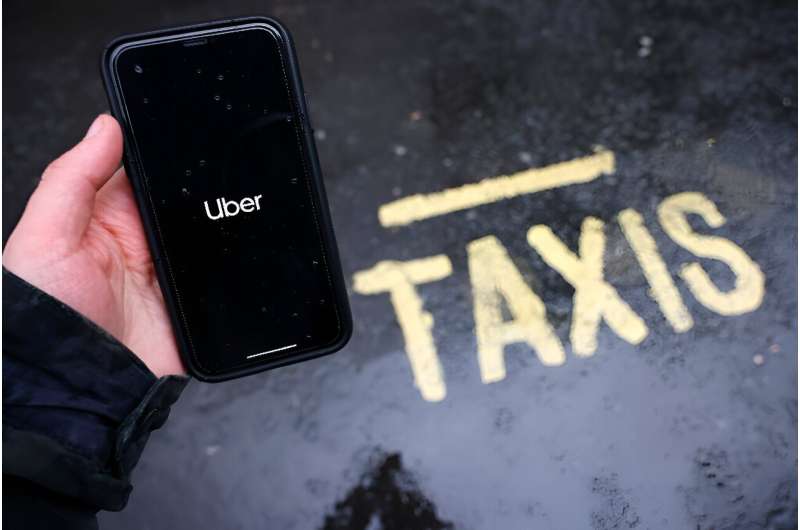This article has been reviewed according to Science X's editorial process and policies. Editors have highlighted the following attributes while ensuring the content's credibility:
fact-checked
reputable news agency
proofread
France, Germany block EU deal on scaled-back app worker law

France and Germany on Friday refused to back a watered-down agreement on controversial EU rules covering app workers in the gig economy, European diplomats said.
The European Union's objective was to bring in bloc-wide rules that supporters hoped would improve conditions for app workers in the gig economy by reclassifying some as employed.
But the latest text scaled back those efforts, by scrapping any formal list of criteria and letting states decide how to classify workers.
For any approval, there needed to be a qualified majority of 15 out of 27 EU nations, representing at least 65 percent of the bloc's population.
During a meeting of member states' ambassadors in Brussels, the EU's two most populous countries, France and Germany, blocked the text with the support of Estonia and Greece, denying the qualified majority, diplomats told AFP.
There were concerns that the text did not harmonize rules across Europe and would create legal uncertainties, a French diplomat said.
"Unfortunately, the necessary qualified majority voting wasn't found," Belgium, which holds the rotating EU presidency, said on social media.
"We'll now consider the next steps," it added.
EU diplomats said the presidency would not give up. "Why would they? There are 23 countries supporting this deal," one said.
Others were skeptical, saying time is running out to find a new compromise and complete the legislative process before June's European elections.
Macron blamed
The draft rules have been a source of controversy since the European Commission first proposed the text in 2021.
Member states and the European Parliament struck a first agreement on the draft text in December 2023 but days later, a France-led blockade stopped the deal in its tracks.
EU negotiators returned to the table and reached a new deal last week.
The original text agreed in December said that if a worker met two out of five criteria, it will be presumed they are an employee, giving them access to benefits like sick pay.
The idea was to end the practice of courts across Europe handing down decisions that varied wildly.
Workers' groups slammed the failure to reach an an agreement on even the latest watered-down text.
"Millions of precarious platform workers with little or no rights will remain at the mercy of unscrupulous platforms," the European Transport Workers' Federation said.
Left-wing French MEP, Leila Chaibi, accused French President Emmanuel Macron of defending Uber's interests.
"To the very end, Macron will have torpedoed this directive and prevented millions of workers from having any rights and until the end he will have defended the interests of Uber," she told AFP.
'Legal uncertainty'
The industry welcomed the failure to back the text.
The rejection "confirms that member states do not want to approve a deal that would have created more legal uncertainty for the hundreds of thousands of ride-hailing drivers in Europe," said Aurelien Pozzana, Move EU chair.
Move EU is a European association of ride-hailing platforms representing companies including Uber and Bolt.
"It is now high time to pause the discussions and assess after European elections if there is any support for this text for which no agreement has been found in three years," Pozzana said.
"Today EU countries recognized that the proposed text directly contradicted what platform workers say they want," an Uber spokesperson said.
The EU parliament believes at least 5.5 million people could be wrongly classified as self-employed. There are around 28 million gig workers dependent on online platforms in Europe, with the number expected to rise to 43 million in 2025.
© 2024 AFP





















